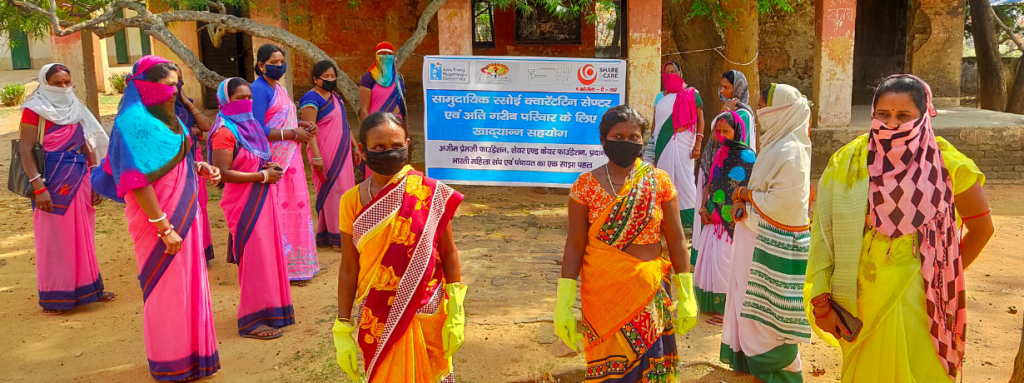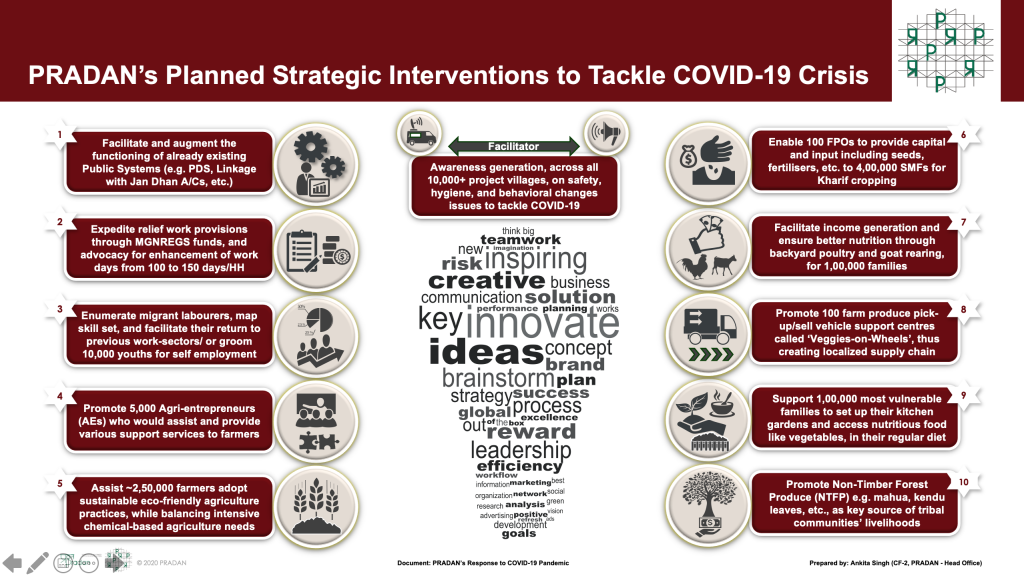3 min read
As India enters into the 4th phase of lockdown, we are caught between the dilemma of savings lives or protecting livelihoods by keeping the economy open and running. The most marginalised, daily wage earners, unorganised labour class and those at the fringes of our society have been disproportionately affected. With the migrant labourers returning home with no cash or savings, village communities are stressed due to the loss of remittance income, and the added mouths to feed.
As India is primarily an agrarian economy supporting 60% of the population, reviving agriculture and allied sectors would be critical in the coming days. While we continue supporting in immediate relief efforts, we must work towards creating small local growth clusters with more self-reliant systems of production, processing and marketing to create livelihoods and employment for 0.5 to 1 million households. At PRADAN, we are directing our energy to create around 10 such growth clusters which will positively impact a population of 5 million. Some key elements of our strategy are briefly captured below:
- Creating public awareness across all our 10,000+ project villages on safety and hygiene issues, including maintaining social distancing.
- Strengthening public systems to enrol families who do not have Ration cards, Jan Dhan accounts, MGNREGS Job cards and other such documentation into former government systems so that they can receive state benefits and the slew of relief measures that seek to reach the neediest and deserving.
- Facilitating provision of relief work through MGNREGS (100 days job guarantee scheme) by creating assets like plantations, water-harvesting structures, land treatment measures, etc. which can provide immediate wages as well as improve livelihoods in the medium and long-term. As food stocks dwindle, the nutrition status of households would be adversely impacted. To ensure nutrition security, about 100,000 vulnerable families would need to be supported to set up their kitchen gardens.
- Enumerating all migrant labourers who have returned home and facilitate those willing to return to their place of employment by re-activating the agent networks. For those who do not want to return, PRADAN plans to groom and promote 10,000 such youth as Entrepreneurs or Self-employed (YSE), who are linked to local livelihood eco-systems.
- Facilitating backyard poultry and goat rearing with provisions for improvement on sheds, vaccines and other support to 100,000 families.
- Encouraging 100 Farmer Producer Organisation (FPOs) to support around 400,000 Small and Marginal Farmers (SMFs) by providing all necessary services to the farmer. For the coming years, FPOs can help SMFs cultivate cereals, oilseeds and pulses to ensure food security at the household level as well as contributing to the national food security. PRADAN also plans to promote 100 Farm produce pick-up and selling to final consumer vehicle support centres called “Veggies-on-wheels”, as a move towards shorter and more localised supply chains.
- Working with 250,000 farmers towards a new paradigm by shifting from intensive chemical-based agriculture to adopting sustainable eco-friendly agriculture practices. Tribals in forest fringe areas, who are dependent on Non-Timber Forest Produce would be supported for smooth access to schemes under Pradhan Mantri Vandhan Yojana.
NGOs in India have come out with a strong response, being at the frontline and can play a major role in re-building phase. To roll-out the above set of activities in all our 120 blocks across 7 states, supporting on an average a population of 50,000 people in each block, we would need about $150,000 per block as annual programme investments. With current programmes we have initiated some interventions, but we would need generous financial assistance from private donors and philanthropic organisations to sustain our efforts.



















